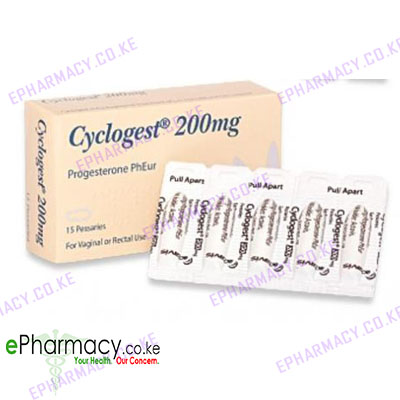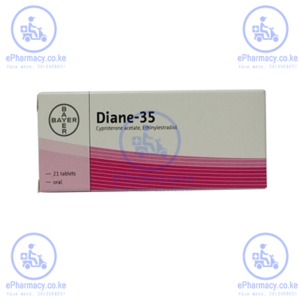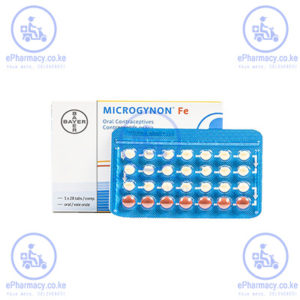Description
In women with a history of recurrent miscarriage and proven progesterone deficiency, twice weekly intramuscular injection (increased to daily if necessary) of 25 to 100 mg of progesterone, from about day 15 of the pregnancy until 8 to 16 weeks, has been used. A similar schedule has been used in in vitro fertilisation or gamete intra-fallopian transfer techniques with treatment beginning on the day of transfer of embryo or gametes. The dose may be increased to 200 mg daily if necessary. Alternatively, progesterone may be given as a vaginal gel at a dose of 90 mg daily continued for 30 days after laboratory evidence of pregnancy; 90 mg twice daily has been used in women with ovarian failure.
Progesterone (SUSTEN or CYCLOGEST in Kenya) may be given orally, vaginally or rectally in doses of 200 mg daily to 400 mg twice daily for the management of the premenstrual syndrome. Treatment usually starts on day 12 to 14 of the menstrual cycle and continues until the onset of menstruation. Similar vaginal or rectal doses have also been used in the treatment of puerperal (post-natal) depression.
Precautions
Progesterone and the progestogens should be used with caution in patients with cardiovascular or renal impairment, diabetes mellitus, asthma, epilepsy, and migraine, or other conditions which may be aggravated by fluid retention. They should also be used with care in persons with a history of depression. High doses should be used with caution in patients susceptible to thromboembolism.
Progesterone and the progestogens should not be given to patients with undiagnosed vaginal bleeding, nor to those with a history or current high risk of arterial disease and should generally be avoided in hepatic impairment, especially if severe. Unless progestogens are being used as part of the management of breast or genital-tract carcinoma they should not be given to patients with these conditions.
Although progestogens have been given as hormonal support during early pregnancy such use is not now generally advised. Some, however, allow the use of a progesterone-type progestogen for women who are progesterone-deficient. Such use may prevent spontaneous evacuation of a dead fetus, therefore careful monitoring of pregnancy is required. Progestogens should not be used diagnostically for pregnancy testing and should not be given in missed or incomplete abortion.






Reviews
There are no reviews yet.